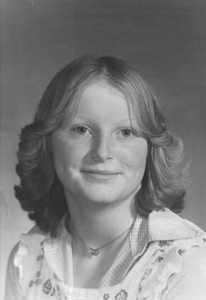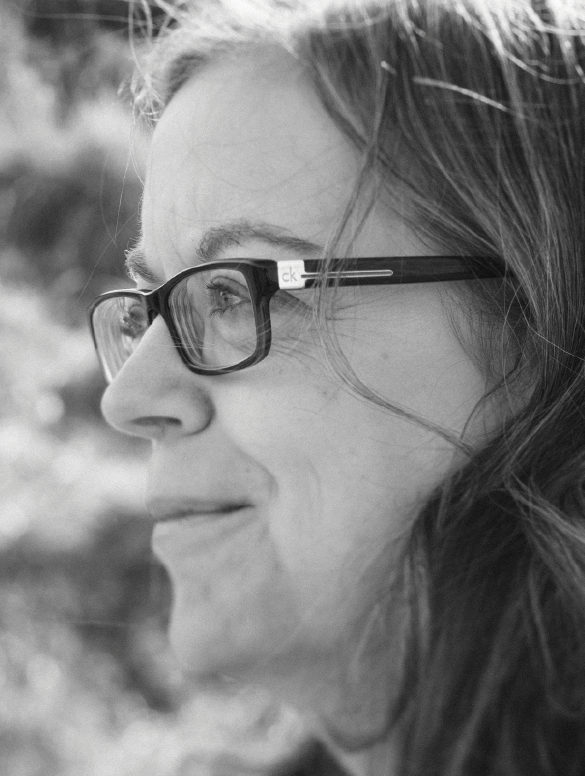
The fact that Karen was being bullied at school wasn’t exactly unknown, but no one seemed to realize just how bad the situation was, or how desperate Karen felt about it. Her suicide rocked the small Crowsnest Pass community where Karen lived, and threw her family into emotional shambles.
Fast-forward 36 years. The date of what would have been Karen’s 50th birthday was approaching, and her sister, Patricia Poriz (BEd ‘93, BHSc ‘12), found her thoughts drifting toward her departed sibling more and more.
“She never really left my thoughts, but last spring, I was thinking about Karen all the time,” Poriz says. “I wanted to commemorate her somehow, so I started to write a poem in her memory.”
What began as a simple dedication from one sister to another became an epic piece of writing entitled Ricochet of Regrets – a lengthy and intense work of prose that is effectively the voice of anyone who’s been the target of bullying and, by their own hand, is no longer around to speak for themself. Poriz says the piece took on a life of its own, spilling out from her onto paper after almost four decades of silent reflection, sadness and unanswered questions.
“Over the years, I thought a lot about the kids who bullied Karen,” says Poriz. “I wondered what became of them. What kind of lives did they have? Did they ever think about my sister? I didn’t feel any animosity orbitterness; I just wondered. The words in the piece come from those questions, and the voice in the poem became that of victims who’ve succumbed to their tormentors.”

Bullying is not a new phenomenon, but in today’s world of instant communication and social media, kids who are bullied often can’t escape the onslaught. Cyberbullying is a relatively new aspect to the issue, and it has made the problem more prominent than ever before.
University of Lethbridge education professor Dr. Robin Bright (BA '79, BEd '82, MEd '88) has a special interest in technology and communication patterns among students. Bright says that bullying was once seen as “kids just being kids,” but is now viewed as a social issue that cannot be tolerated.
“Provinces are looking at passing anti-bullying legislation, and Alberta has already taken the initiative,” says Bright. “There is a great deal of research on bullying out there, much more than there was even 10 years ago, because most everyone now sees bullying as unacceptable. The approach in the education system today is to focus on developing healthy relationships. The zero-tolerance policies of five years ago didn’t work – they didn’t eliminate the problem. Instead, we as educators are asking ourselves what we can do on a daily basis to ensure that all children feel valued and included, that every student has an understanding of what a positive environment is, and that every child has a safe and welcoming place in which to learn.”

Once Ricochet of Regrets was written, Poriz felt compelled to take the work further. Her husband, who’d also known Karen, encouraged Poriz to bring her words to life on screen – perhaps in the form of a dramatic monologue. Together they began a search for a videographer, eventually connecting with U of L new media student Ethan Calvin. Calvin in turn brought in Trevor DeMaere, a U of L digital audio arts student, and the duo set about creating a video representation of the poem that would portray the sense of hopelessness and desperate isolation that Poriz’s words viscerally convey.
“When I first read the piece it pierced me right through the heart,” says Calvin. “It was incredibly well written – impactful and artfully done. I took the project on and began writing a shot list. It kind of wrote itself, actually. I could picture exactly what I wanted each scene to look like. Everything came together really organically.”
Calvin devised a series of scene shots that include a number of landscapes and landmarks unique to Lethbridge, and DeMaere orchestrated an original soundtrack that features an ethereal and haunting combination of piano and strings. Not sure what they’d do in terms of casting, Poriz suggested they employ some of her young family members – a generation of relatives who never had the chance to meet her sister. The end result is a 10-minute video that pulls no punches. Ricochet of Regrets is a stark representation of bullying’s most devastating effects. Somewhat ironically, the upshot of the video is positive and hopeful.
“I hope it’s a catalyst for discussion, for dialogue on all sides of the equation – from the victims to
the tormentors, to the people who stand by and watch it happen,” says Poriz. “If we can help one person who feels alone because of bullying, then we’ve succeeded.”
Ricochet of Regrets was released on YouTube on March 9, 2014. Poriz has an open Facebook page entitled Prose by Poriz where the video can be seen, and a number of therapists and suicide-awareness organizations were quick to endorse the work. A special screening of the video took place at Lethbridge Public Library this past spring – an event that Poriz says was very healing for her and the rest of her siblings.
“When Karen died, we didn’t know how to deal with it as a family,” says Poriz. “It finally felt like we were mourning Karen the way we should have, and celebrating who she was as a person, too. I think she’d be very pleased that we did this in her memory. She’d probably cry a little, and then burst into giggles the way she always used to.”
This story appears in the Spring 2014 edition of SAM magazine. For a look at the full edition in a flipbook format, follow this link.
